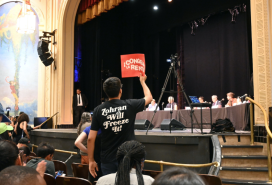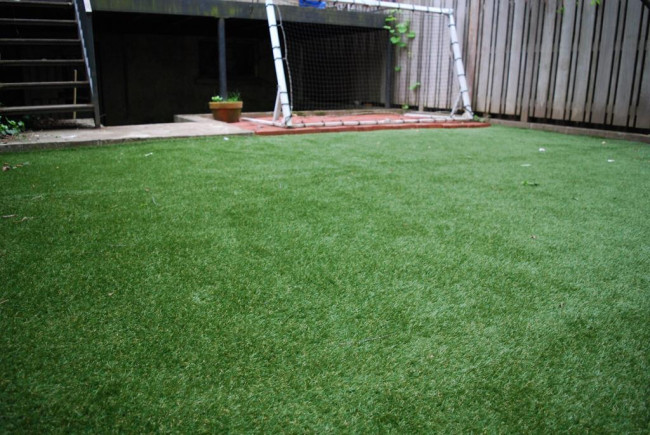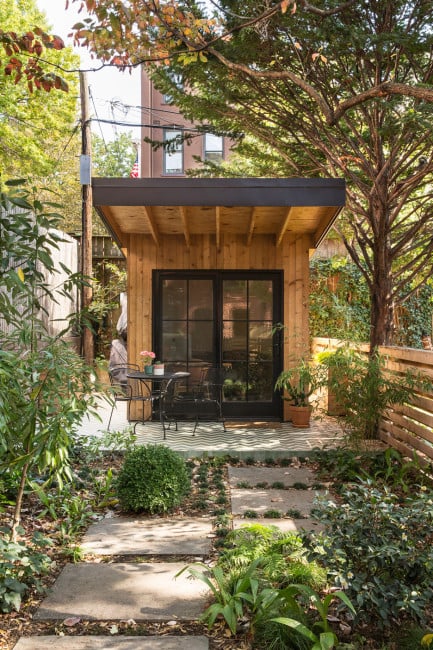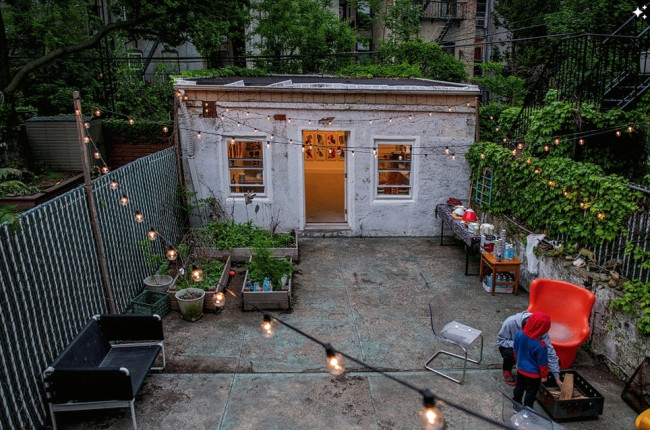What are the rules for building a storage shed or home office in a NYC backyard?
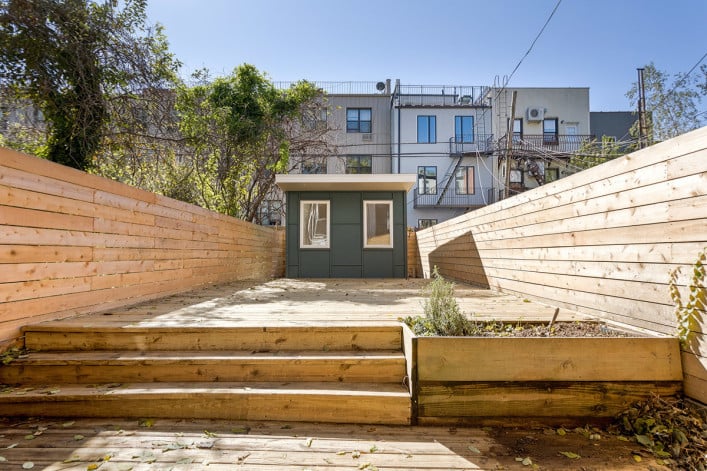
A backyard home office is an enviable addition—this structure sits in the yard of a ground-floor rental in Park Slope.
Working from home has lots of New Yorkers seeking out extra space. For Micheline Russell Brown, who lives on the ground floor of a three-family brownstone in Brooklyn, her dream is to add free-standing studio to the backyard. “There are so many reasons why our family could use an extra room,” she says.
As with any New York City building project, there are regulations and permit requirements if you want to build a shed in your backyard but they differ depending on whether the structure is intended to be used as extra living space, complete with heat, electricity, and plumbing, or is just going to be for storage.
"There are more requirements for structures you intend to have people spend significant amounts of time inside," says Andrew Rudansky, press secretary at the Department of Buildings.
For the rules on building in your backyard, read on.
[Editor's note: This is Part I of a two-part series. For more detail on design, costs, and construction, check out Part II on how to build a shed in your backyard—with options for going the custom, prefab, or DIY route. A previous version of this post was published in March 2021. We are presenting it again in case you missed it.]
Studio or storage shed
Russell Brown saw her neighbors install a prefab studio in their yard in Park Slope during the pandemic that was equipped with windows and electricity. She has plans for something similar, ideally with a green roof and rain barrel. This kind of installation requires permits. "In order to obtain these permits, the homeowner must hire a design professional to design the structure and submit an application to the Department of Buildings for our review," Rudansky says.
Any work on a landmarked property needs additional approval from the Landmarks Preservation Commission. If the application complies with the city's construction codes and zoning rules, it will be approved.
If you want to avoid the need for permits or approvals, you will only be able to use the shed for storage. Even so, there are still regulations, including where the shed can be installed and what you can use it for.
According to the Department of Buildings, sheds cannot be within three feet of the property line if it's made of flammable material like wood, and 120 square feet is the maximum size. Sheds can't be taller than seven feet, six inches and can't have permanent foundations. When it comes to storage, you're restricted to "normal household goods, tools, or similar items." (Although the term "normal" in a city as eclectic as New York is up for debate.)
Prefab or construction
Prefab and custom-built sheds are regulated the same way, so your design choice will come down to a budget decision. Unfortunately in NYC, where rows of buildings cut off access to the backyard, the cost benefits of a prefab are typically canceled by the expense of lifting a structure up and over a townhouse with a crane.
One NYC architect put the estimate for hoisting plus permits and street closure at around $15,000.
If you plan on installing electricity or plumbing systems, the work needs to be carried out by a licensed master electrician or master plumber.
Taking the long view
Building an addition or outbuilding without DOB work permits is illegal. Backyards in NYC are rarely private and it's always possible a neighbor won't like what you're doing. A structure without a permit would prompt a violation and you'd have to either obtain the right permits or remove the structure.
The good news is DOB would only order a demolition of an outbuilding if it was dangerously unsafe.
Violations that aren't quickly dealt with could, of course, create headaches if and when you choose to sell the property. They could tie up a sale or scare off an interested buyer.
You Might Also Like




